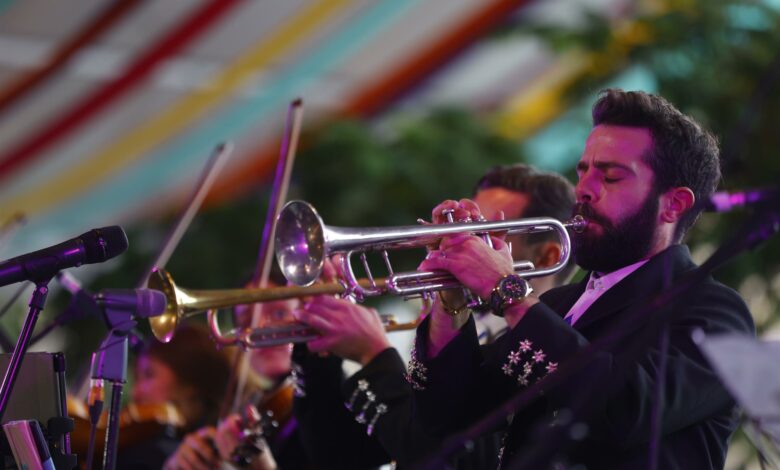
Israeli mariachi band highlights universalization of Mexican music
By Mariana Gonzalez Marquez
Guadalajara, Mexico, Aug 31 (EFE).- Israel’s Mariachi Yerushalayim band combines multiple rhythms into a single musical sound reflecting the universalization of the iconic Mexican music style as the group visits Mexico for the first time to attend the International Mariachi and Charreria Festival in Guadalajara.Wearing black charro suits adorned with assorted glittering and eye-catching accessories, along with traditional Jewish kippahs, the group’s eight members look almost like Mexicans due to the passion with which they play their instruments and perform beloved mariachi numbers like “El Rey,” “Como quien pierde una estrella” and “Besame mucho.”But none of the bandmembers actually has any Mexican blood.
Yohanan Peretz, the band director, was born and grew up in Venezuela, where he devoted himself to playing Mexican music, then he lived for a time in Spain and later emigrated to Israel, where he formed the group along with his wife Sarah, who is from Colombia.Before mounting the stage in Guadalajara’s historic downtown, Peretz told EFE that they formed the group four years ago but not without spending a good amount of time finding the perfect bandmembers in Jerusalem, where they live and where mariachi music is little known.“It’s not the same thing as having a group in which everyone is Mexican or Colombian, sounding practically the same. But in our mariachi band there’s that mixture, which gives it something special. I try not to have it sound extremely Mexican, but rather to give freedom to each musician to put in their style and that gives the group a new sound,” Peretz said.
The band does not sing only Mexican songs, although those are what has given mariachi music its distinctive sound. Rather, they have also adapted songs in Hebrew like “Avadim hayinu,” a song for the period around Easter.Peretz plays the big guitar, Avior Rokah and Bar Ashkenazi are the trumpeters, Lian Cohen, Rotem Tel Shachar and Sarah Peretz play the violins, Natan Rocha is on the vihuela, an early form of guitar, and Lidor Mesika is the singer – and the combination of their efforts both surprises the public and gets people dancing.That happens whether they’re playing in the streets of Jerusalem, in a city in Morocco or in Guadalajara, the cradle of mariachi music and tequila.“Mexican music connects with everyone, it’s a music that makes an impression, has an impact, whether or not someone understands Spanish. We’ve tried that in Spain, but we’re having a good season in Morocco and there people have been fascinated,” Peretz said.Until the group was formed, Israelis only knew the famous song fragment “Ay, ay, ay, ay, canta y no llores” from the classic “Cielito lindo,” and they had only danced to mariachi music in the form of “La cucaracha.”After the band’s performances at venues like the Museum of Israel, the panorama of Mexican music has changed in the Middle Eastern country and “it’s going really well,” the group leader said.Mariachi Yerushalayim isn’t the only mariachi group in Israel, but it’s the first one in the Middle East to stage performances at the international mariachi festival in Guadalajara, and the band also performed publicly prior to the event and will do so afterwards.“For me, this is an historic activity, for the first Israeli mariachi band to come to Mexico to such an important festival. It’s going to go down in the history of Mexican music. We’ve really learned a lot because it’s not the same to play Mexican music outside vs. inside Mexico with all the culture and the people.
That takes the group to another level and gives (us) a new experience,” he said.The mariachi festival runs from Aug. 25 through Sept. 2, with 25 groups from 10 countries performing and a full agenda of activities like galas in the Degollado Theater, where three well-known mariachi bands will combine their music with the Jalisco Philharmonic, along with providing free concerts in both public spaces and business locales.EFE mg/ppc/lll/bp




